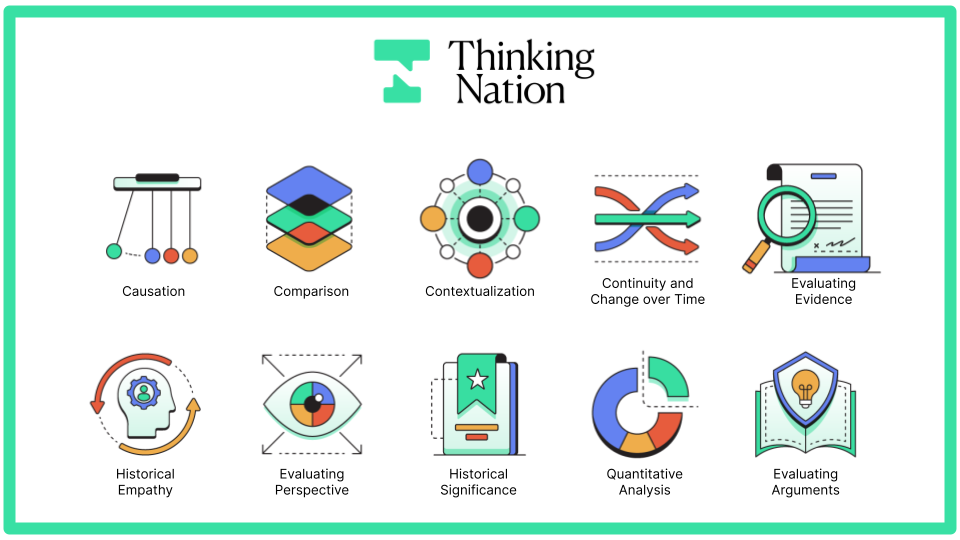Hello! I’m Valerie Badica, Operational Support at Thinking Nation. I was excited to take over this week’s blog to be able to share a bit about myself and experience in the education field. Although I have a few years of experience in the role of operations, before this, I was a preschool teacher for six years and received my Masters in Educational Psychology with an emphasis in Early Childhood Development. During my teaching career, I had the privilege of working at a preschool that supported children with their intrinsic motivation to explore, learn, and think critically. This really shaped the way I viewed teaching and helped me to understand that all children are curious about the world around them and inherently want to learn and create.
I think it’s safe to say that we all learn better when we’re engaged in activities we’re already interested in, right? The same goes for children! That’s because learning seems interesting when we can relate to it. This thought is already found in research as one approach for successful ways to integrate social studies into elementary classrooms– by making content relevant to student’s lives as stated in 2023 CCSSO Guidelines: “Effective Social Studies Integration in Elementary Classrooms.” (Check out our past blog post for more research around elementary social studies).
One of the things I found most rewarding in working with young children was building close relationships with them but most importantly, knowing that I was helping them add social and learning skills to their toolbelt that are required of them by the time they get to elementary school. An example of what these relevant teaching opportunities looked like was when I would help children through conflict resolution if they were fighting over a toy. I never resolved the situation for them by telling them what they needed to do but rather, act as a narrator and state what I noticed and then helped facilitate a solution that was agreed upon by all children involved. This might sound like me simply stating, “It looks like you both want to ride the bike right now but we only have one bike, I wonder what we can do about that?” This helped students think critically and start a conversation about coming to a resolution while learning about perspective and empathy.
Another favorite memory of mine was watching children engage in pretend play. This happened every day at preschool but I especially remember a time where children built an ice cream shop using big wood blocks and later took on different roles such as customer, cashier and even traffic officer. So much learning is happening during this play time; children are engaged physically, socially, cognitively and developing turn-taking, negotiation skills, authority and so much more. Children can relate to this because they are clearly imitating what they see in the social world and by allowing these types of learning experiences to happen in the early years of a child’s life, we allow their curious minds to think critically and continue being curious and harness their love for learning later in life as they move on to grade school and on.

Similarly, Thinking Nation’s mission to cultivate critical thinkers goes hand-in-hand with the skills taught as early as preschool age to become thoughtful leaders in society. In fact, one of the reasons why I enjoy working for an organization like Thinking Nation is because I noticed that the disciplinary skills used to empower students and feel confident in their thinking, are similar skills I taught early learners and complement each other.
I’d like to leave you with some good news! Thinking Nation is working to develop a curriculum for young learners in the near future and I’m excited to be a part of something that helps students’ ideas feel important and think critically so that they have a voice wherever they go, at any age.